News + Media
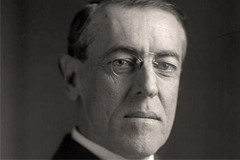 |
AuditApril 1, 2008Wilson’s radical vision for global governanceEzra Manela, Harvard UniversityIn recent years, Woodrow Wilson has returned to feature prominently in the public discourse on the role of the United States in the world. For students of U.S. foreign relations, this is hardly a surprising development. Wilson was responsible for articulating a vision of the U.S. role in the world—usually described as “liberal internationalism”—that has remained, despite well-known flaws and scores of critics over the years, dominant in shaping American rhetoric and self-image, if not always policies, vis-à-vis the rest of the world. |
 |
AuditApril 1, 2008Good and bad news on global developmentDani Rodrik, Harvard UniversityI start with some good news, because there is, I think, a lot of good news in the world of development. Then I want to present what I think is essentially a paradox. The paradox, to put it very crudely, is that while economic development is working, development policy is not. |
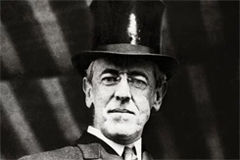 |
AuditApril 1, 2008Wilson, Bush, and the evolution of liberal foreign policyTony Smith, Tufts UniversityThe first subject to discuss in considering the future of the liberal internationalist agenda is the importance of the democratization project to the definition of Wilsonianism. The second is the meaning of multilateralism. In the first case, Thomas Knock and Anne-Marie Slaughter argue in a forthcoming volume that democratization was never an important part of Wilsonianism; that, instead, multilateralism is the key to liberal internationalism. |
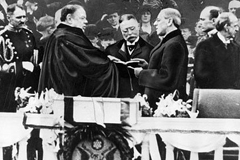 |
AuditApril 1, 2008Wilson and the founders: the roots of liberal foreign policyTed Widmer, Brown UniversityWe can’t do much better than reclaiming the Declaration of Independence as a fundamental foreign policy document in American history. We have a tendency to read it in a simplistic way, and to think of it only as a sort of airy declaration of what were then human rights, and a declaration of separation from England. |
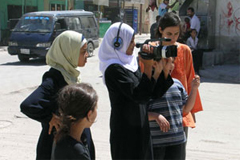 |
In the NewsMarch 21, 2008Just Jerusalem competition winnersMIT’s Jerusalem 2050 Program, a joint initiative sponsored by the Department of Urban Studies and Planning and the Center for International Studies, announced today the winners of its global Just Jerusalem competition. The open contest sought proposals that addressed different aspects of urban life in a futurist Jerusalem. Participants were asked to look beyond the current nation-state conflict and, instead, focus on ‘just’ the city as a place where, by mid-century, its citizenries co-exist in peace. |
 |
News ReleaseMarch 21, 2008Just Jerusalem competition winners announcedMIT’s Jerusalem 2050 Program, a joint initiative sponsored by the Department of Urban Studies and Planning and the Center for International Studies, announced today the winners of its global Just Jerusalem competition. The open contest sought proposals that addressed different aspects of urban life in a futurist Jerusalem. |
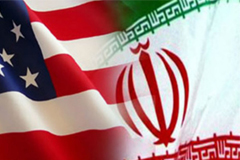 |
In the NewsMarch 20, 2008A solution for the US-Iran nuclear standoffThomas R. Pickering, William Luers, and Jim WalshNew York Review of BooksThe recent National Intelligence Estimate's conclusion that Tehran stopped its efforts to develop nuclear weapons in 2003, together with the significant drop in Iranian activity in Iraq, has created favorable conditions for the US to hold direct talks with Iran on its nuclear program. The Bush administration should act on this opportunity, if for no other reason than that its current position is growing weaker, and without such an initiative, Iran will continue its efforts to produce nuclear fuel that might, in the future, be used to build nuclear weapons. |
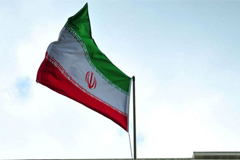 |
Analysis + OpinionMarch 3, 2008How to end the US-Iran standoffWilliam Luers, Thomas Pickering and James WalshInternational Herald TribuneContinuing to try to sanction Iran has made life difficult for some Iranians but will not coerce Iran to change its commitment to a nuclear program. |
 |
AuditMarch 1, 2008A solution for the US–Iran nuclear standoffWilliam Luers, Thomas R. Pickering, and Jim WalshThe recent National Intelligence Estimate’s conclusion that Tehran stopped its efforts to develop nuclear weapons in 2003, together with the significant drop in Iranian activity in Iraq, has created favorable conditions for the US to hold direct talks with Iran on its nuclear program. |
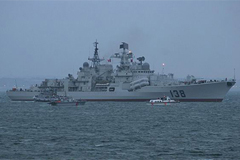 |
In the NewsMarch 1, 2008US-Japan relations and a changing AsiaThe Center organized a two-day retreat entitled "US-Japan Relations and a Changing Asia." The event was held on Feb. 29 and March 1, 2008, at the Endicott House at MIT. Moderating the discussions was, Ford International Professor of Political Science and director of CIS. Llewelyn Hughes, a doctoral candidate in the Department of Political Science and an affiliate of the Security Studies Program, served as rapporteur. |



